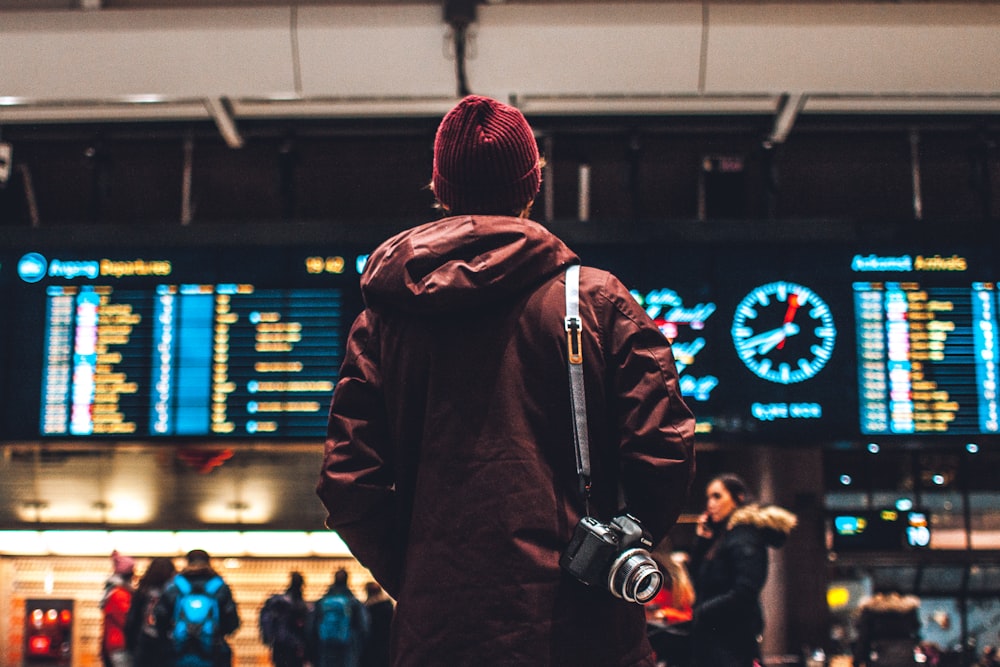For most travellers, ditching a rigid plan and simply “going where the wind takes you” might sound like a risky undertaking. Travel blogs never fail to remind us to plan ahead to ensure we get the most out of a destination. However, there’s something wonderful about being a bit more easygoing with your adventures and keeping your options open.
Embracing flexibility can unlock a treasure trove of experiences. Think about discovering hidden local gems, or simply soaking up the city’s charm instead of rushing from place to place. Being flexible and spontaneous lets you seize the moment, adapt to the unexpected, and squeeze every drop of adventure out of your trip. But is ditching the itinerary the right move for you?
In this article, we’ll delve into the pros and cons of flexible travel, helping you decide if you should plan meticulously or embrace the flow on your next adventure.
Pros of Being a Flexible Traveler
Exploring Off-the-Beaten-Path Destinations

Without the limits of your itinerary, you can unlock a treasure trove of hidden experiences. Imagine stumbling upon a charming mountain village, a secluded beach paradise, or a vibrant local market overflowing with cultural gems. By embracing a flexible approach, you transform from tourist to intrepid explorer, uncovering unique experiences that most travelers miss entirely.
To get started, seek your hotel concierge for insider tips and recommendations or check the hotel website. For example, this hotel in Waterford features a blog packed with travel guides on must-see attractions and hidden gems around the city.
Seizing Spontaneous Opportunities
Unleash the adventure! Flexibility lets you chase those fleeting, unforgettable moments that might not be part of an average tourist’s itinerary. Imagine stumbling upon a vibrant night market, a hidden waterfall tucked away in the countryside, or the chance to join a last-minute hike with breathtaking views. With a flexible approach, you can seize these spontaneous moments, turning them into unforgettable memories that make your trip truly unique.
Adapting to Changing Circumstances

Flight delays, heavy traffic, closed attractions, or unexpected detours – a flexible mindset lets you roll with the punches. You’ll adapt to changing circumstances, overcome obstacles, and keep your trip on track with minimal stress.
Embracing the local culture
Flexibility lets you truly connect with a place and embrace the local rhythm. Without the bounds of a fixed schedule, you’ll have more time to chat with artisans at a bustling market, join a spontaneous street celebration, or savor a local dish.
By being open and flexible, you can break down barriers, forge connections with locals, and experience the heart of a culture in a way that rigid plans can’t offer. This is how travel becomes truly enriching.
Reducing Stress and Pressure
Flexibility is the ultimate travel relaxation hack! Say goodbye to jam-packed schedules and rigid plans. Instead, embrace the freedom to explore at your own pace. Imagine sleeping in after a late-night adventure, savouring a delicious meal, or taking a detour to a scenic viewpoint that wasn’t on the map. With a flexible approach, you can ditch the stress, savor the present moment, and truly unwind as you explore.
Cons of Being a Flexible Traveler
While being a flexible traveler has its merits, there’s a flip side to the constant “go with the flow” approach when overdone.
Lack of Structure and Planning
While it offers fun and amazing benefits, there can be a downside. Without some structure, you might feel adrift, unsure of what to do next. This can lead to missed opportunities, especially if there are specific sights or experiences you don’t want to miss.
Risk of Missing Out

Skipping all the iconic sights for random detours might leave you with regrets later. It can lead to FOMO (fear of missing out) if you’re not careful. The key is to find a happy medium!
Research some key attractions beforehand but leave room for those unexpected gems that make travel magical. This way, you can experience the best of both worlds: planned adventures you won’t forget, and the thrill of discovering something new.
Higher Costs and Last-Minute Bookings
Flexibility often comes at a price, a hefty cost if you’re not careful. Flights, hotels, and activities booked on short notice may be more expensive than the ones booked prior. Unforeseen expenses can also arise, like spontaneous activities or transportation changes. With this, factor in a buffer in your budget to handle these situations.
Potential for Disappointment
Going with the flow can be amazing, but sometimes it throws you a curveball. Imagine missing a train due to a detour, struggling to navigate a language barrier, or ending up at a closed attraction. Flexibility is great, but it requires a good dose of adaptability and a cool head when such unexpected situations arise. Be prepared to embrace the unknown, because with flexibility comes the possibility of disappointment or disorganization.
The key to a successful trip is to strike the perfect balance between embracing serendipity and minimizing the downsides of a loose itinerary. By weighing the pros and cons, you can make the most of every moment on your travels and go home with unforgettable experiences.
Author Bio: Carmina Natividad is a free-spirited damsel who loves documenting her adventures. Her fondness for travel, food, and cultural appreciation makes it easy for her to write inspiring pieces of content about them. To know more about hotels and travel blogs, you may visit Viking Hotel Waterford.